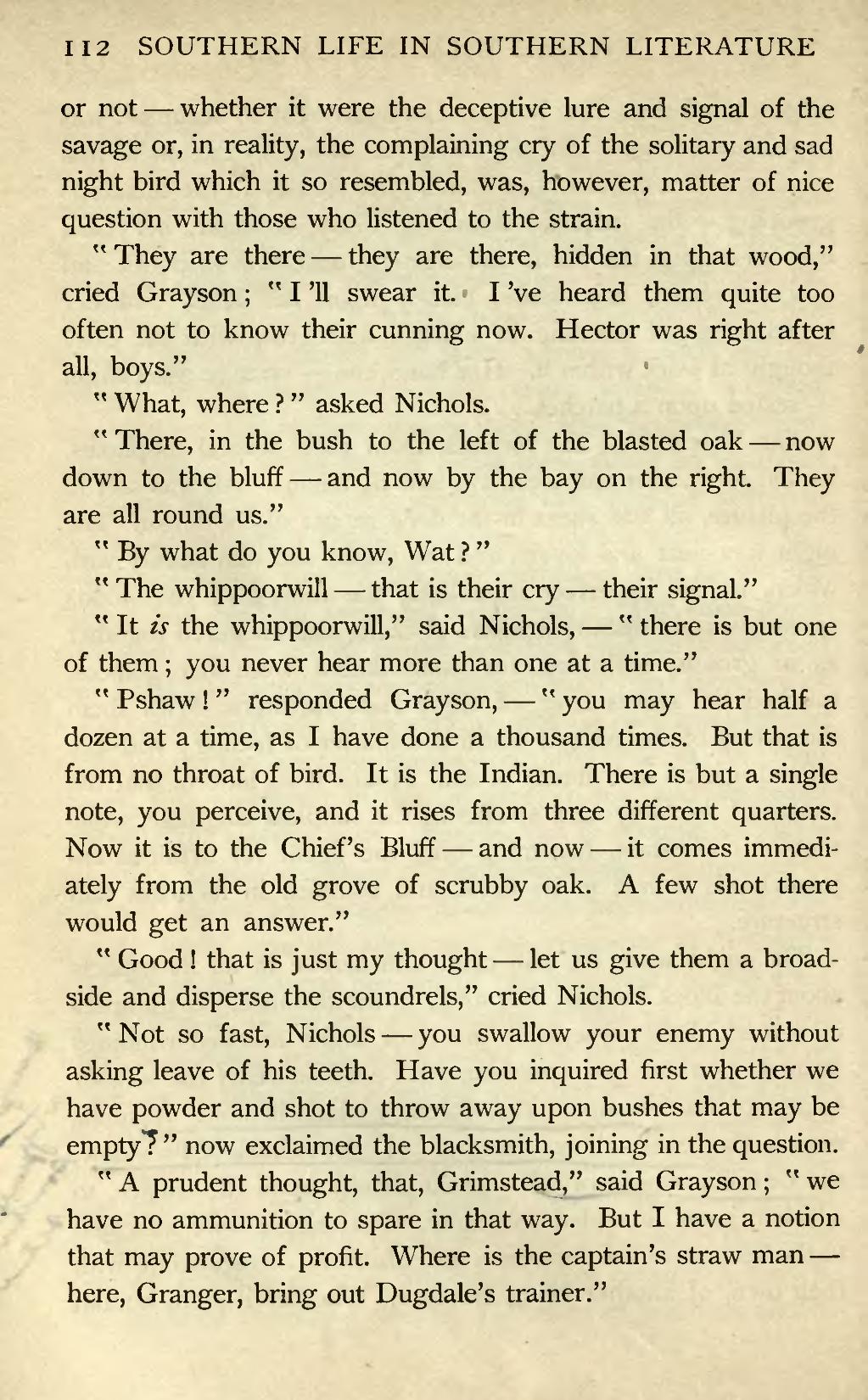or not—whether it were the deceptive lure and signal of the savage or, in reality, the complaining cry of the solitary and sad night bird which it so resembled, was, however, matter of nice question with those who listened to the strain.
"They are there—they are there, hidden in that wood," cried Grayson; "I'll swear it. I've heard them quite too often not to know their cunning now. Hector was right after all, boys."
"What, where?" asked Nichols.
"There, in the bush to the left of the blasted oak—now down to the bluff—and now by the bay on the right. They are all round us."
"By what do you know, Wat?"
"The whippoorwill—that is their cry—their signal."
"It is the whippoorwill," said Nichols,—"there is but one of them; you never hear more than one at a time."
"Pshaw!" responded Grayson,—"you may hear half a dozen at a time, as I have done a thousand times. But that is from no throat of bird. It is the Indian. There is but a single note, you perceive, and it rises from three different quarters. Now it is to the Chief s Bluff—and now—it comes immediately from the old grove of scrubby oak. A few shot there would get an answer."
"Good! that is just my thought—let us give them a broadside and disperse the scoundrels," cried Nichols.
"Not so fast, Nichols—you swallow your enemy without asking leave of his teeth. Have you inquired first whether we have powder and shot to throw away upon bushes that may be empty?" now exclaimed the blacksmith, joining in the question.
"A prudent thought, that, Grimstead," said Grayson; "we have no ammunition to spare in that way. But I have a notion that may prove of profit. Where is the captain's straw man—here, Granger, bring out Dugdale's trainer."
